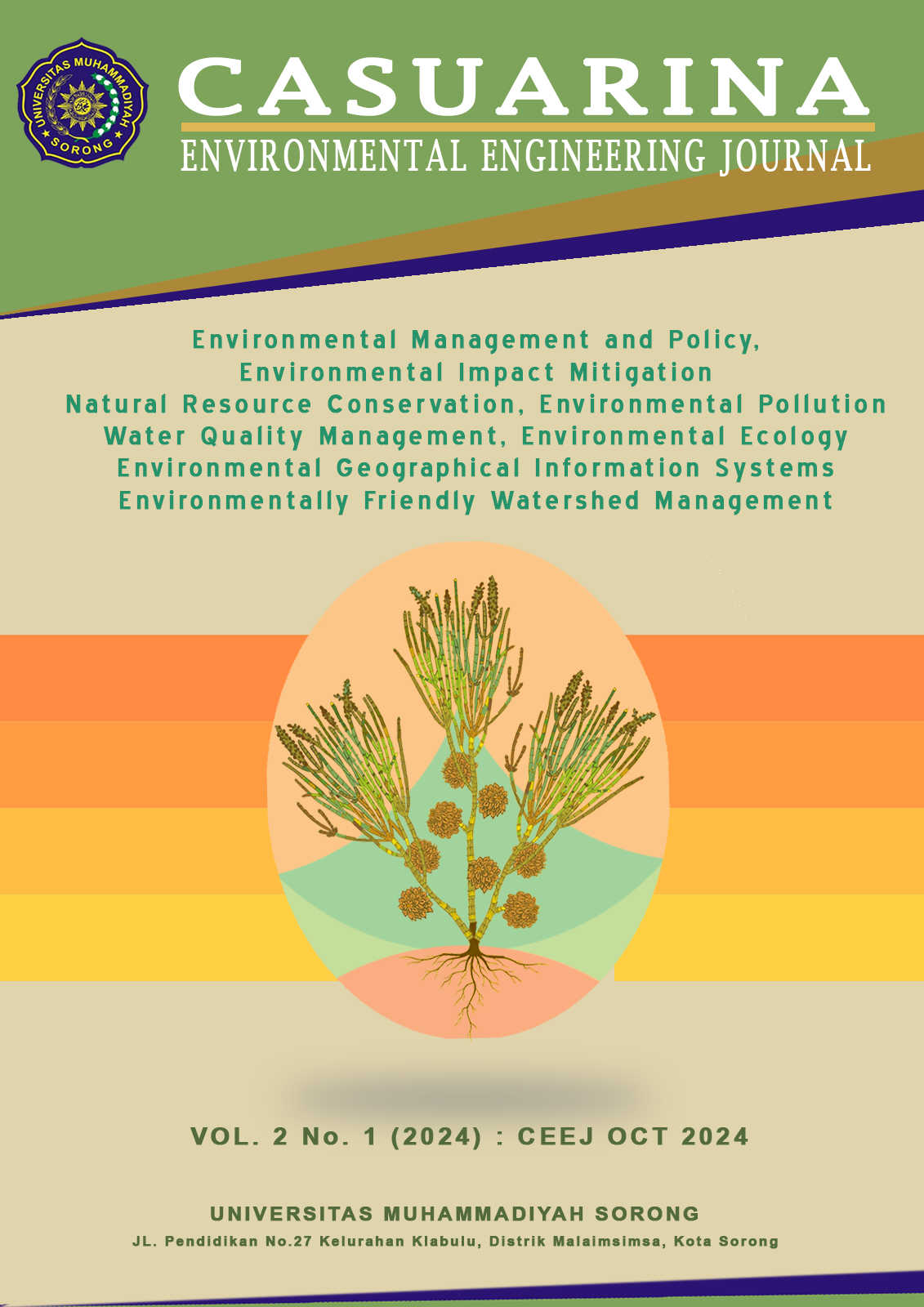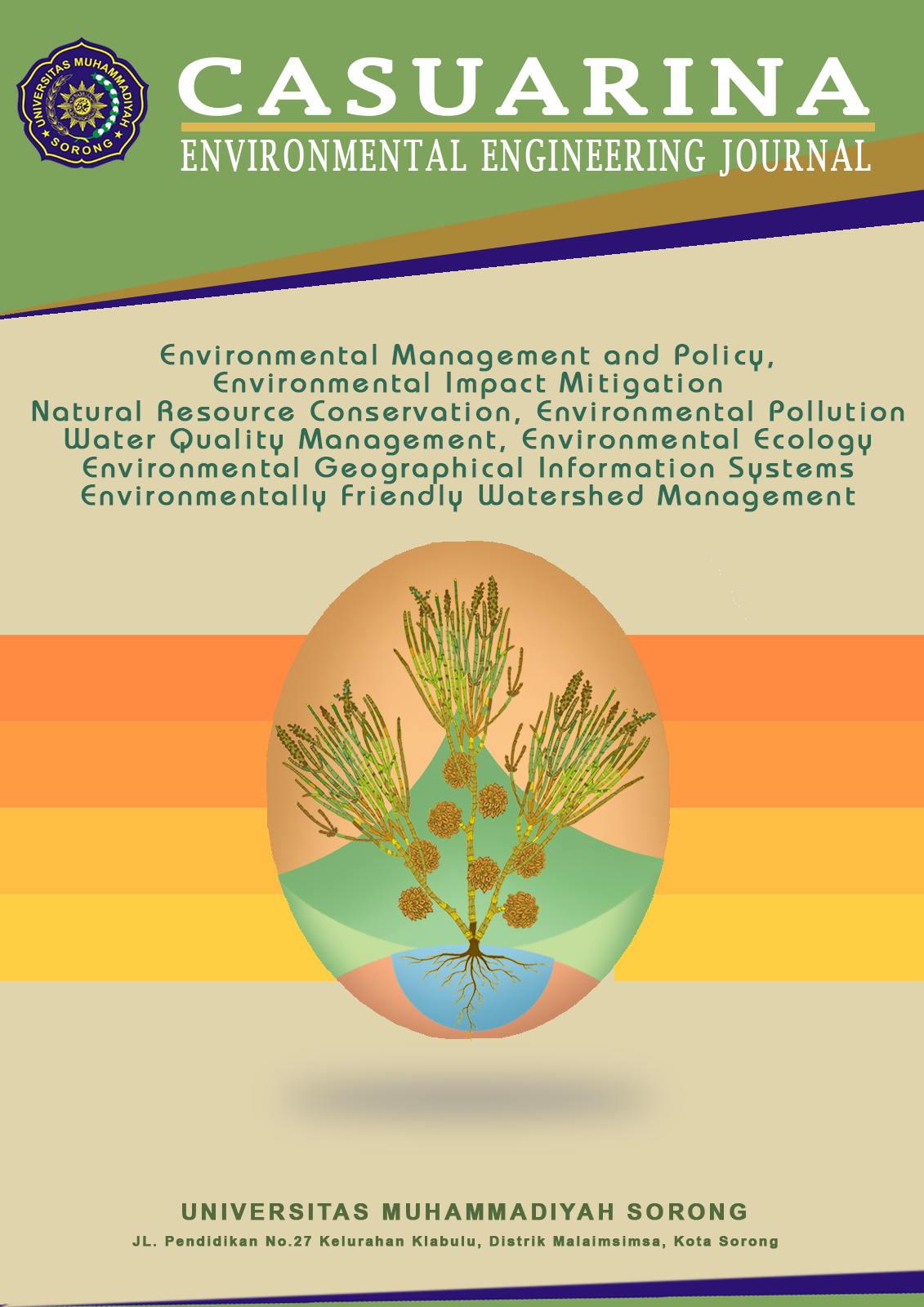The Level of Awareness of the Younger Generation Towards SDGs
DOI:
https://doi.org/10.33506/ceej.v2i1.3770Keywords:
Sustainable Development, Sustainable Development Goals, Young GenerationAbstract
Sustainable development is a principle that prioritizes achieving human development while maintaining natural systems to ensure that society remains dependent on nature and the resources it contains. This research aims to obtain conclusions regarding the extent to which the younger generation is aware of the SDGs with 17 indicators in the tertiary sector. The research method used in this research is a quantitative method using research instruments in the form of questionnaires. This research was conducted using a questionnaire to collect data, and covers all 17 SDGs. Consists of 51 closed-ended questions covering a variety of current social, economic and environmental topics. Determining the population sample size was calculated using the Slovin formula, so that 67 active students of the biology study program were obtained as respondents in this research. The overall level of awareness of students in the biology study program at UIN Sunan Ampel Surabaya is relatively high, this is shown by students who have high knowledge and a positive attitude. It is recommended that the introduction of SDGs to students needs to be deepened, this can be done by adding new courses related to global goals and sustainable development.
References
Cerin P. Bringing economic opportunity into line
with environmental influence: A discussion on
the Coase theorem and the Porter and van der
Linde hypothesis. Ecol Econ. 2006 Feb;56(2):209 25.
Setianingtias R, Baiquni M, Kurniawan A.
PEMODELAN INDIKATOR TUJUAN
PEMBANGUNAN BERKELANJUTAN DI INDONESIA. J
Ekon Pembang. 2019 Dec 31;27(2):61–74.
Prabu Aji S, Kartono DT. Kebermanfaat Adanya
Sustainable Development Goals (Sdgs). J Soc
Res. 2022 May 25;1(6):507–12.
Kadarisman A. Peran Generasi Muda dalam
Pemanfaatan Media Sosial untuk Mempromosikan
Geopark Ciletuh. Ultim J Ilmu Komun. 2019 Dec
;11(2):92–108.
Irhamsyah F. Sustainable Development Goals
(SDGs) dan Dampaknya Bagi Ketahanan Nasional.
J Lemhannas RI. 2020 Aug 5;7(2):45–54.
Wadu LB, Gultom AF, Pantus F. PENYEDIAAN AIR
BERSIH DAN SANITASI : BENTUK KETERLIBATAN
MASYARAKAT DALAM PEMBANGUNAN
BERKELANJUTAN. Pendidik Kewarganegaraan.
Dec 25;10(2):80.
Downloads
Published
How to Cite
Issue
Section
License
Copyright (c) 2024 Casuarina: Environmental Engineering Journal

This work is licensed under a Creative Commons Attribution-NonCommercial-ShareAlike 4.0 International License.
Please find the rights and licenses in Casuarina: Environmental Engineering Journal. By submitting the article/manuscript of the article, the author(s) agree with this policy. No specific document sign-off is required.
1. License
The non-commercial use of the article will be governed by the Creative Commons Attribution license as currently displayed on Creative Commons Attribution-NonCommercial-ShareAlike 4.0 International License.
2. Author(s)' Warranties
The author warrants that the article is original, written by the stated author(s), has not been published before, contains no unlawful statements, does not infringe the rights of others, is subject to copyright that is vested exclusively in the author, and free of any third party rights, and that any necessary written permissions to quote from other sources have been obtained by the author(s).
3. User/Public Rights
Casuarina: Environmental Engineering Journal's spirit is to disseminate articles published are as free as possible. Under the Creative Commons license, Casuarina: Environmental Engineering Journal permits users to copy, distribute, display, and perform the work for non-commercial purposes only. Users will also need to attribute authors and Casuarina: Environmental Engineering Journal on distributing works in the journal and other media of publications. Unless otherwise stated, the authors are public entities as soon as their articles got published.
4. Rights of Authors
Authors retain all their rights to the published works, such as (but not limited to) the following rights;
- Copyright and other proprietary rights relating to the article, such as patent rights,
- The right to use the substance of the article in own future works, including lectures and books,
- The right to reproduce the article for own purposes,
- The right to self-archive the article (please read our deposit policy),
- The right to enter into separate, additional contractual arrangements for the non-exclusive distribution of the article's published version (e.g., post it to an institutional repository or publish it in a book), with an acknowledgment of its initial publication in this journal (Casuarina: Environmental Engineering Journal).
5. Co-Authorship
If the article was jointly prepared by more than one author, any authors submitting the manuscript warrants that he/she has been authorized by all co-authors to be agreed on this copyright and license notice (agreement) on their behalf, and agrees to inform his/her co-authors of the terms of this policy. Sentralisasi will not be held liable for anything that may arise due to the author(s) internal dispute. Sentralisasi will only communicate with the corresponding author.
6. Royalties
Being an open accessed journal and disseminating articles for free under the Creative Commons license term mentioned, author(s) aware that Casuarina: Environmental Engineering Journal entitles the author(s) to no royalties or other fees.
7. Miscellaneous
Casuarina: Environmental Engineering Journal will publish the article (or have it published) in the journal if the article editorial process is successfully completed. Casuarina: Environmental Engineering Journal's editors may modify the article to a style of punctuation, spelling, capitalization, referencing, and usage that deems appropriate. The author acknowledges that the article may be published so that it will be publicly accessible and such access will be free of charge for the readers as mentioned in point 3.








